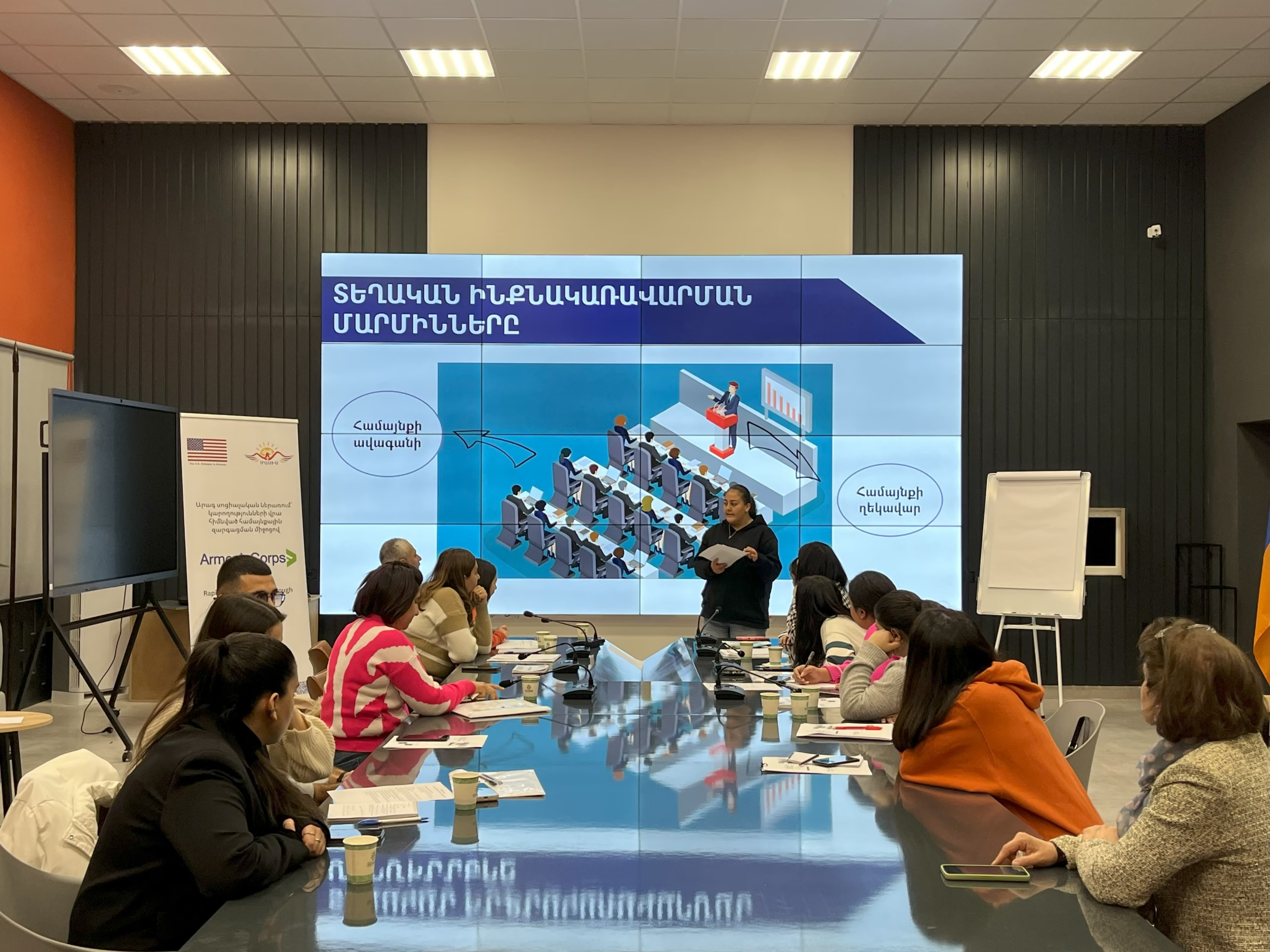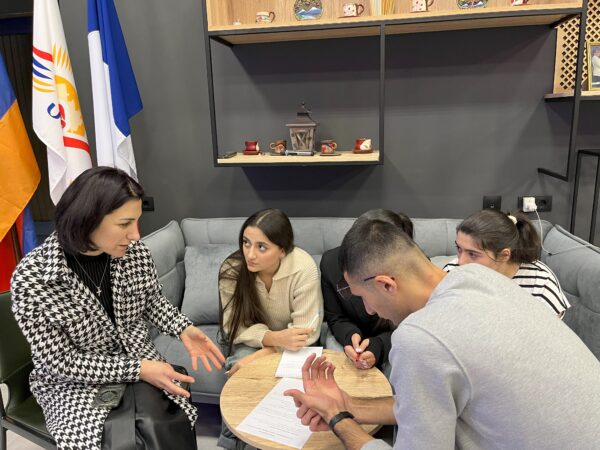

“The topic was highly relevant and essential,” shared participant Lianna Tovmasyan. “We now better understand the legal and practical aspects of public participation, including the role of the municipal assembly in involving residents in community progress.”
Masis Community, Ararat region: On December 7 and 8, 2024, ArmeniaCorps hosted interactive workshops as part of the Rapid Social Inclusion through Asset-Based Community Development program. These sessions explored how community structures function and how citizens can participate meaningfully in local governance.
Led by expert Abraham Artashesyan, participants gained a practical understanding of municipal systems, legal frameworks, and mechanisms for civic engagement. With this knowledge, they began identifying strategic ways to raise their voices and shape decisions that affect their communities.
Through active discussions, participants moved beyond theory. They developed strategies to become engaged contributors to community life and advocates for inclusion.
By learning how governance structures work, participants realized the power they hold to influence local development. As Lianna emphasized, every resident has a role in shaping the future of their community.
Now, as the program progresses, these emerging leaders will work in teams to design and implement initiatives that promote social inclusion across the Masis Consolidated Community.
The foundation has been laid—now the work begins.
Armenia Corps Development Initiative designed the Rapid Social Inclusion through Asset-Based Community Development Program to promote social inclusion in the Masis community, which includes 26 villages and Masis city. The program brings together 36 local and displaced youth to create localized solutions that foster social inclusion and generate community-level recommendations for better integration.
The program is funded through a Department of State Public Diplomacy Section grant, and supported by the Masis Community Administration. The opinions, findings and conclusions or recommendations expressed herein are those of the ArmeniaCorps and do not necessarily reflect those of the Department of State.

